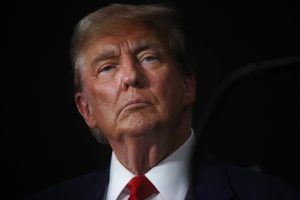China has joined Russia in condemning Israel’s military strikes on Iran, labeling them a breach of Iranian sovereignty and warning of “serious consequences” due to attacks on nuclear facilities. The escalating conflict, which has already claimed dozens of lives, threatens to destabilize the region further, with global powers urging restraint.
During an emergency United Nations Security Council meeting on June 13, 2025, Chinese UN Ambassador Fu Cong called for an immediate halt to Israel’s actions.
“China condemns Israel’s actions that violate Iran’s sovereignty, security, and territorial integrity,” Fu said. “We urge Israel to immediately stop all risky military actions to avoid further escalation of tensions and express deep concern over the serious consequences that Israel’s actions may bring.”
Fu later told reporters that China is particularly alarmed by Israel’s targeting of nuclear sites, stating, “We are particularly concerned that they are attacking nuclear facilities, which is another red line that Israel has crossed.” The International Atomic Energy Agency (IAEA) confirmed that Israel’s airstrikes destroyed the above-ground portion of Iran’s Natanz nuclear facility, a key uranium enrichment site. IAEA Director General Rafael Grossi told the UN Security Council that the attack caused “radioactive and chemical contamination inside the facility,” though he noted it could be managed with protective measures. The underground section of Natanz remains intact, but further strikes could exacerbate risks.
Israel launched its offensive, dubbed Operation Rising Lion, in the early hours of June 12, 2025, targeting nuclear sites, military installations, and key figures, including senior generals and nuclear scientists. Some strikes hit civilian apartment complexes, presumably targeting individuals residing there. Iran’s UN ambassador reported 78 deaths and over 320 injuries. In retaliation, Iran fired waves of missiles and drones, killing at least three and wounding dozens in Israel, though most were intercepted by Israeli and US defenses.
Russian President Vladimir Putin, in separate calls with Israeli Prime Minister Benjamin Netanyahu and Iranian President Masoud Pezeshkian on June 13, condemned Israel’s actions as violations of the UN Charter. Russia’s foreign ministry called the strikes on nuclear infrastructure “categorically unacceptable,” echoing China’s concerns. Putin offered to mediate to prevent further escalation, a proposal also extended to stalled talks on Iran’s nuclear program.
The conflict has heightened tensions at a time when Russia and Iran are deepening ties. Iranian state media recently announced Russian plans to build eight nuclear power plants in Iran, with two already under construction, a claim supported by Russia’s RT news outlet. Iran has also supplied Russia with Shahed drones and ballistic missiles for its war in Ukraine, strengthening their military partnership.
China’s economic ties with Iran are equally significant. As the largest buyer of Iranian oil, China accounts for roughly 90% of Iran’s oil exports. In May 2025, a new railway trade route from Shanghai to Tehran cut transit times in half, to 15 days. That same month, railway officials from China, Iran, and several Central Asian nations met in Tehran to discuss a rail network linking Asia and Europe. Reports also indicate Iran recently ordered large quantities of ammonium perchlorate from China, a key component for ballistic missiles, sufficient to fuel 800 missiles.
The IAEA’s Grossi emphasized the dangers of targeting nuclear facilities, a stance he has consistently taken regarding attacks in conflict zones like Ukraine. While no radiation leaks have been detected outside Natanz, the strikes have disrupted ongoing US-Iran nuclear talks, with a scheduled sixth round in Oman now in doubt.
As global oil prices surged over 10% following the strikes, concerns mount over economic fallout and the risk of a broader regional war. China, Russia, and other powers continue to call for diplomacy, but with Israel vowing to continue its campaign and Iran promising a “more severe” response, the path to de-escalation remains uncertain.








Be First to Comment